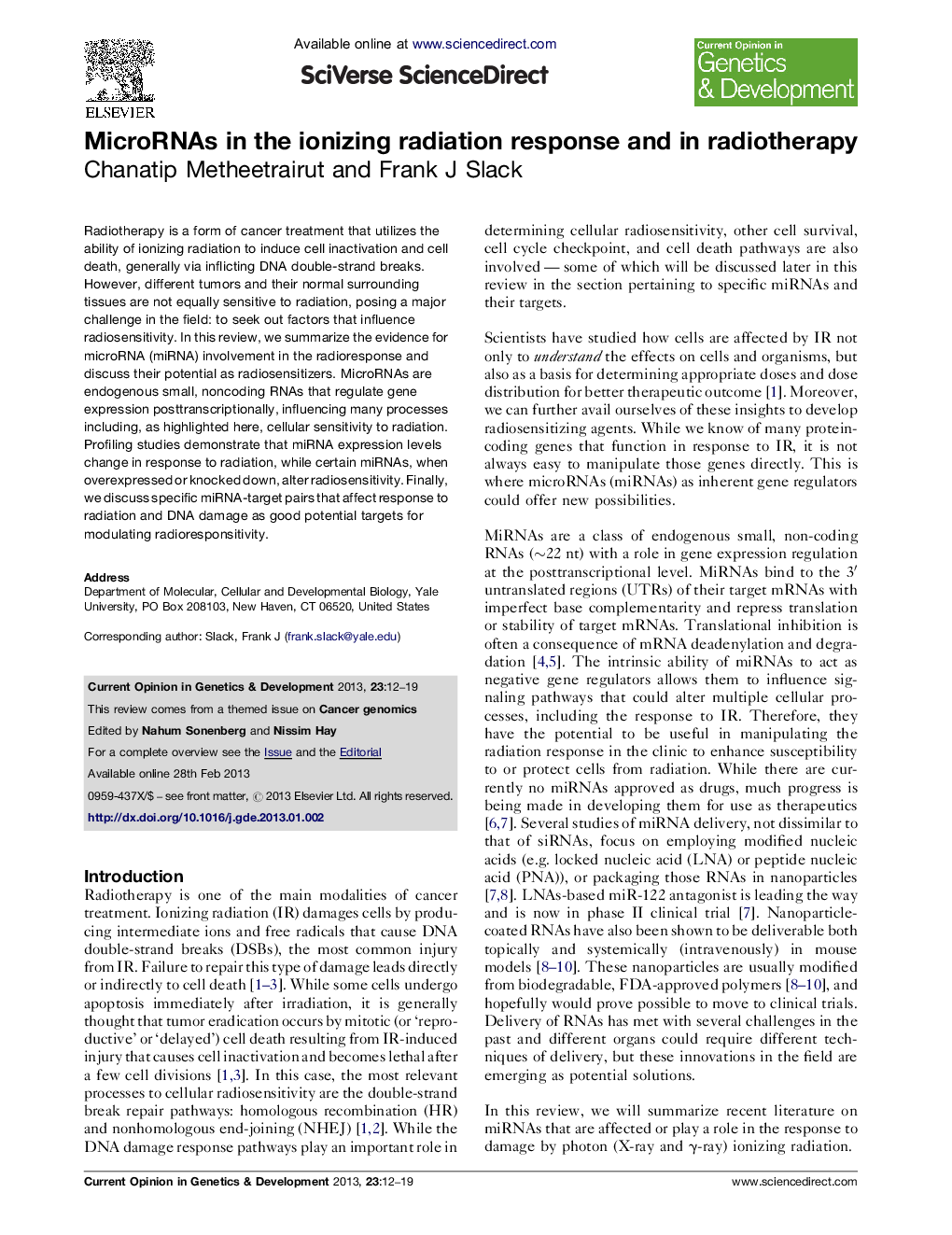| Article ID | Journal | Published Year | Pages | File Type |
|---|---|---|---|---|
| 5893478 | Current Opinion in Genetics & Development | 2013 | 8 Pages |
Radiotherapy is a form of cancer treatment that utilizes the ability of ionizing radiation to induce cell inactivation and cell death, generally via inflicting DNA double-strand breaks. However, different tumors and their normal surrounding tissues are not equally sensitive to radiation, posing a major challenge in the field: to seek out factors that influence radiosensitivity. In this review, we summarize the evidence for microRNA (miRNA) involvement in the radioresponse and discuss their potential as radiosensitizers. MicroRNAs are endogenous small, noncoding RNAs that regulate gene expression posttranscriptionally, influencing many processes including, as highlighted here, cellular sensitivity to radiation. Profiling studies demonstrate that miRNA expression levels change in response to radiation, while certain miRNAs, when overexpressed or knocked down, alter radiosensitivity. Finally, we discuss specific miRNA-target pairs that affect response to radiation and DNA damage as good potential targets for modulating radioresponsitivity.
